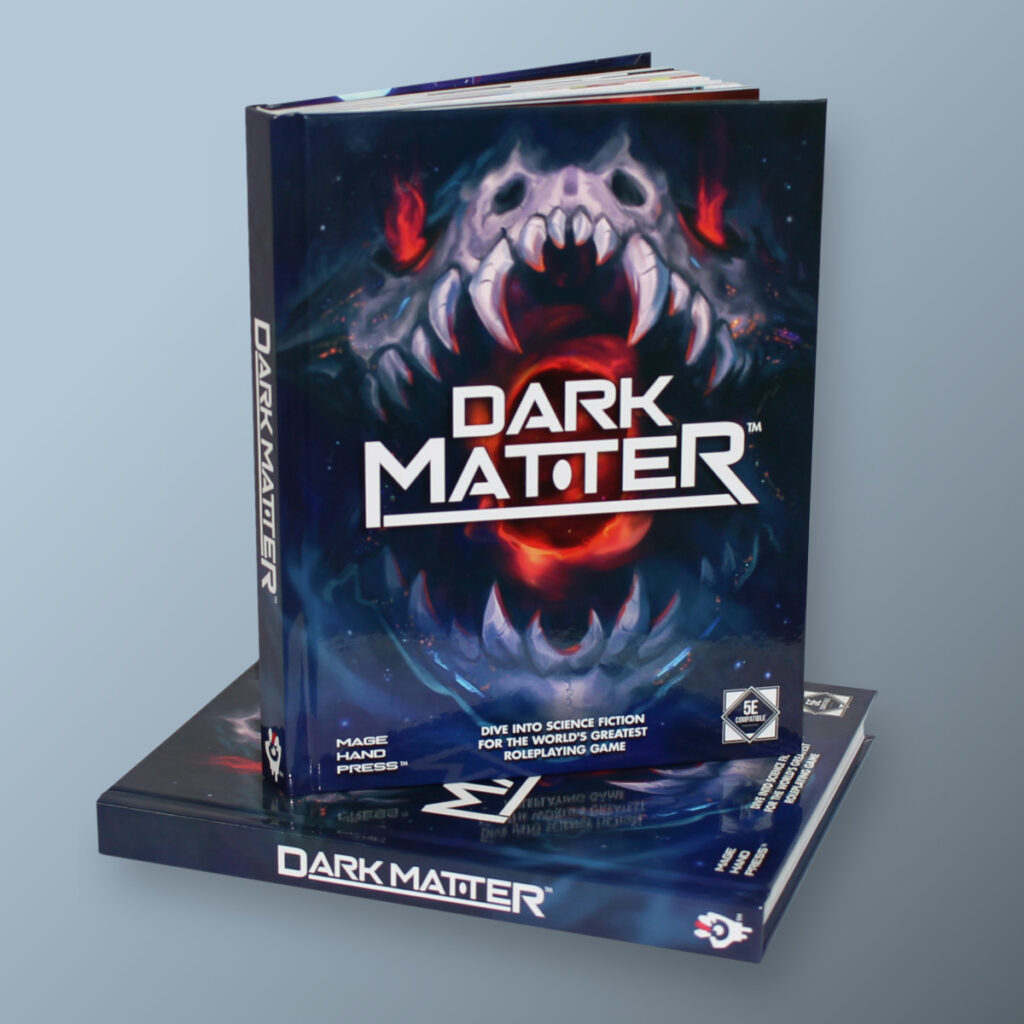In this article series, we’ll be revisiting and reviving the Insomnia project, a book designed to bring horror to your D&D game.
The creeping threat of madness is an increasingly problematic and bizarre relic of the cosmic horror genre, and one we’ve helped to perpetuate in our early careers. Though it’s easy to model human sanity as akin to an HP bar, steadily decreasing as resolve and mental stability drains, it feels increasingly insensitive to portray all mental illness with a broad and callus brush. This doesn’t mean that the whole of Lovecraftian-inspired media should drop the emphasis on psychological horror entirely — after all, the writings of H.P. Lovecraft clearly come from the perspective of someone struggling with existential crises with the modern world and perhaps chronic anxiety (as well as a deep and unabiding ethnocentrism).
Therefore, our solution was the Alienation score. As your character grows in Alienation, you more fully understand the terrible secrets of the elder gods, but you also drift further from your contemporaries, and must struggle with the existential consequences of your knowledge.
If you’ve seen this before on the Patreon years back, you might notice that we’ve reworked the mechanics and the stages. We determined that this progression is more reminiscent of the stages of grief, and that the mechanics are easier to grapple with. Enjoy!
Alienation
If the players confront an eldritch incursion, you can use the optional Alienation score below to invoke the creeping dread and tenuous sanity that is essential to cosmic horror.
Alienation Score
The Alienation ability score represents a character embracing eldritch truths and the deranged perspective that follows.
In contrast to other ability scores, a high Alienation is not necessarily a good thing. As such, each character starts out with 0 Alienation. A character without an Alienation score is considered ignorant; they are perfectly sane and have never encountered something from beyond reality. Such a character will refuse to even believe in the pseudonatural without irrefutable evidence. By contrast, a character with a high Alienation has deep insight into the pseudonatural, and bears the weight of that perspective on their psyche. A character with the highest Alienation score has embraced some part of true understanding, which irrevocably divorces them from sanity as we know it.
You can grant characters an additional point of Alienation when they encounter an aberration for the first time, decipher an eldritch secret pertaining to the nature of the universe, make direct contact with an alien creature, or peer beyond reality. Any event that calls for an Alienation check or saving throw might also bestow a point of Alienation on a failure, as you choose. Greater Alienation should walk in lock-step with the story; the characters Alienation grows as they come closer to discovering the lingering eldritch truths of the campaign.
Progressively higher Alienation scores are divided into the following levels, each of which grant a unique feature while your Alienation score is in that range.
| Alienation Score | Tier |
| 0 | Ignorance |
| 1-4 | Awareness |
| 5-9 | Obsession |
| 10-14 | Paranoia |
| 15-19 | Dread |
| 20 | Revelation |
Ignorance (0)
You know nothing of the terrors of the world. Sleep soundly, child, for there is nothing that can harm you.
Awareness (1-4)
You have experienced the unthinkable, learned a scrap of forbidden knowledge, or seen something from beyond the mortal world. Your eyes have been opened to the fathomless terrors of the universe and they can never be closed. Once you gain your first point of Alienation, you can’t lose it.
Unsettled. You have disadvantage on saving throws you make to avoid or end the charmed or frightened conditions.
Obsession (5-9)
You have supped of forbidden knowledge and crave even more. Your every thought slides down spiral chasms of implications, but dreadful secrets at the center of it looms large in your mind. Wherever you look, new patterns take shape, and with few exceptions, they spell doom for yourself and the world at large.
Conspiracy. When you score a critical hit or roll a 1 on an attack roll, roll any die. On an odd roll, a critical hit becomes a roll of 1, and vice versa.
Paranoia (10-14)
You wake every night in a cold sweat, terrified of the consequences of what you have learned. Horrors don’t simply await you in far-flung realms, but around every corner, and inside every cupboard, waiting to rend you asunder for your trespasses.
Mania. Whenever you deal damage with an attack, you can add your Intelligence, Wisdom, or Charisma modifier to the damage roll, if you don’t already add it. However, your Armor Class decreases by 2.
Dread (15-19)
You can feel the weight in your gut with every moment of apprehension. The secrets you bear have eroded your psyche, wearing deep ravines of terror in your everyday life. The normal patterns of the world have grown foreign, replaced with alien designs and esoteric forms. Worse still, you now know that the terminus is inevitable: when the stars are right, everything shall come to a monstrous end.
Despair. You have disadvantage on initiative rolls. Additionally, the first attack made against you in the first round of combat has disadvantage.
Revelation (20)
Your mind reels as the totality of perspective comes crashing in like a wave. You have achieved a revelation, a fragment of wisdom from beyond the stars.
Whatever hope you once held of maintaining your grip on reality is lost. Everything you previously knew was but shadow puppets on a cave wall, and now, stepping into the cold, bright light of understanding, you can see vistas more terrifying than humanity was meant to know.
Once you gain 20 points of Alienation, you can’t lose them. Nothing short of a wish spell can repair your psyche.
Doom. When you make an attack roll, ability check, or saving throw, you add your Alienation modifier to the roll. Once you use this ability, you can’t use it again until you roll initiative or finish a short or long rest.
Additionally, whenever you finish a long rest, your hit point maximum decreases by 1d4. You die if this feature reduces your hit point maximum to 0.
Losing Alienation
Too much Alienation has disastrous effects on a mortal mind. As such, a character can spend the downtime between adventures sleeping restlessly, pitching and turning each night with fitful dreams. The character loses one point of Alienation, to a minimum of 1.
Alienation Checks
You might call for an Alienation check when a character seeks to understand or interact with pseudonatural creatures or items. You might call for a Alienation check for the following activities:
- Perceiving almost unrecognizable patterns in everyday events
- Completing an alien ritual dedicated to an elder god
- Seeing an otherwise invisible eldritch sign or creature
- Solving an eldritch puzzle using circular logic and fractal geometry
- Understanding a madman’s motivations, or the behavior of a corrupted creature
- Knowing the chants and incantations dedicated to specific otherworldly entities
Alienation Saving Throws
You can call for a Alienation saving throw at any time a character is confronted by the fathomless wisdom of the Great Old Ones or the surreal inhabitants of the Far Realm. Some creatures might also call for a Alienation saving throw to resist the mind-altering effects of madness. You might call for an Alienation saving throw in the following scenarios:
- Experiencing a apocalyptic or prophetic dream
- Touching a corrupted artifact
- Resisting the spells of a pseudonatural warlock
- Withstanding the pseudonatural corruption near an otherworldly gate
- Glimpsing an elder god’s true form
You decide the consequences of failing an Alienation saving throw. The following are some easy-to-implement examples:
- The character gains 1 point of Alienation
- The character takes 1d10 psychic damage for each of its class levels
- The character becomes disoriented and has disadvantage on ability checks for 1 hour
- The character becomes stunned for 1 round, spending the duration screaming, laughing, or weeping
- For 1 hour, the creature suffers from aphasia. It can’t speak and is incapable of spellcasting or understanding others.
- Intense vertigo washes over the creature for 1 hour. The creature falls prone at the end of each of its turns if it isn’t leaning against something.
- The creature becomes frenzied for 1 minute. A frenzied creature loses the ability to distinguish between friend and foe, regarding all creatures it can see as enemies. While frenzied, the creature chooses the targets for its attacks, spells, and abilities randomly from among the creatures it can see within range, and it must make an opportunity attack if any creature provokes one.



